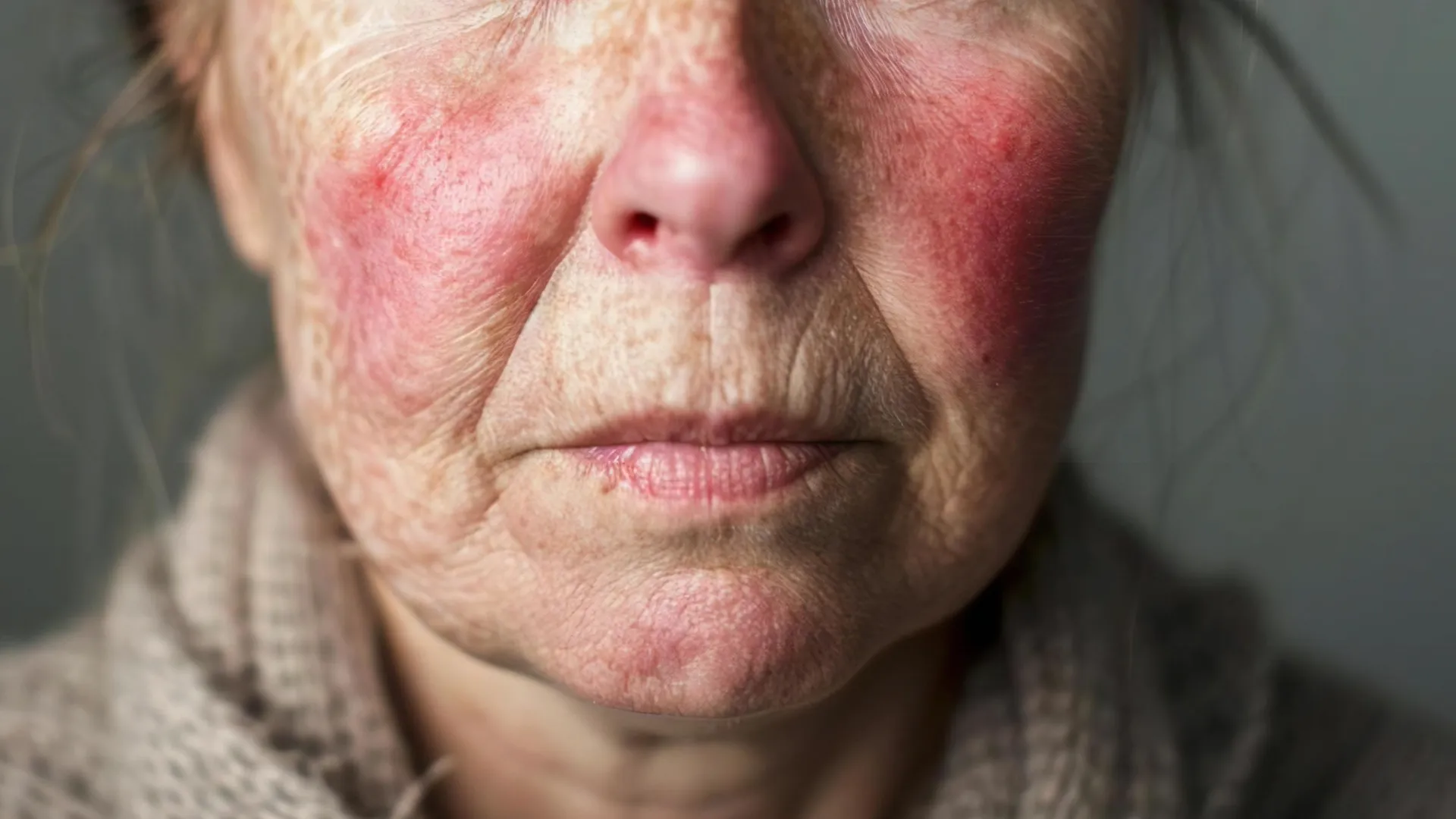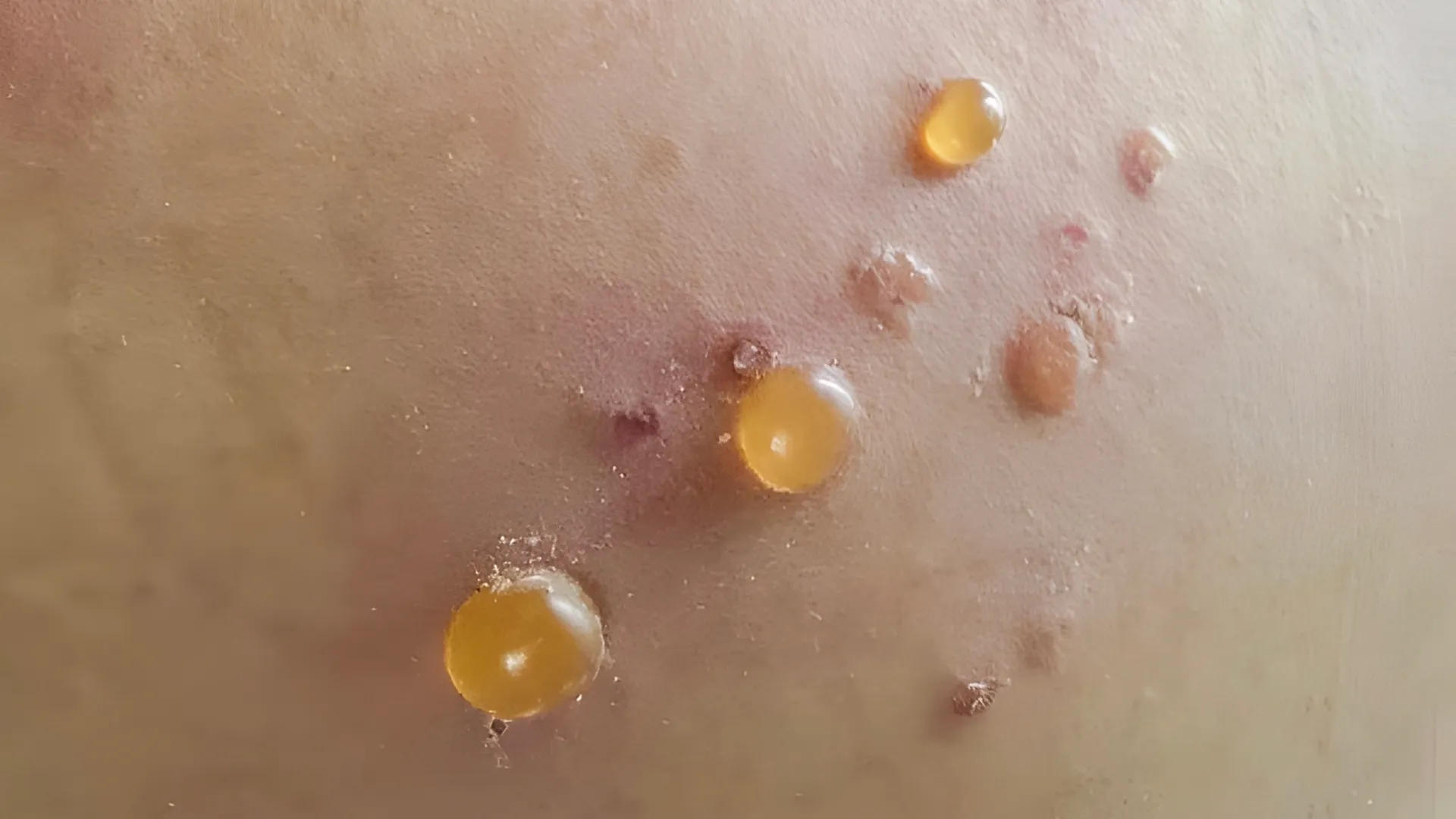Dermatomyositis
Dermatomyositis is a rare autoimmune condition characterized by muscle weakness and distinctive skin rashes. It primarily affects adults but can also occur in children. The exact cause is unknown, but it is believed to involve genetic and environmental factors. Dermatomyositis is associated with an increased risk of certain cancers, particularly in adults so it is important for healthcare providers to conduct thorough evaluations for malignancies in patients diagnosed with the disease.
Symptoms
-
Muscle weakness: Progressive weakness, particularly in the proximal muscles (shoulders, hips and neck).
-
Fatigue: General fatigue and malaise may accompany muscle weakness.
-
Dermatological manifestations: Dermatomyositis presents with several characteristic skin findings, including:
- Heliotrope rash: A violaceous rash that typically appears on the eyelids and around the eyes, often with periorbital edema.
- Gottron’s papules: Erythematous or violaceous papules on the dorsal surfaces of the hands, particularly over the finger joints.
- Shawl sign: A reddish-purple rash resembling a shawl, appearing on the back and shoulders.
- Mechanic’s hands: Thickened, cracked skin on the palms and fingers, resembling the hands of someone who works with tools.
- Nail changes: Changes such as periungual erythema or nail fold telangiectasias.
- V-sign: A rash that appears in a V-shape on the chest, characterized by pink or violaceous discoloration.
Diagnosis
- Clinical evaluation: Assessment of muscle strength and skin manifestations.
- Blood tests: Checking for elevated muscle enzymes (e.g., creatine kinase) and specific autoantibodies.
- Muscle biopsy: A sample may be taken to assess for inflammation and muscle damage.
- Skin biopsy: Helps confirm the diagnosis by revealing characteristic changes.
Treatment
Treatment focuses on managing symptoms and controlling the autoimmune response:
- Corticosteroids: Often the first line of treatment to reduce inflammation and muscle weakness.
- Immunosuppressants: Medications such as azathioprine or methotrexate may be used for more severe cases.
- Physical therapy: Important for maintaining muscle strength and function.

